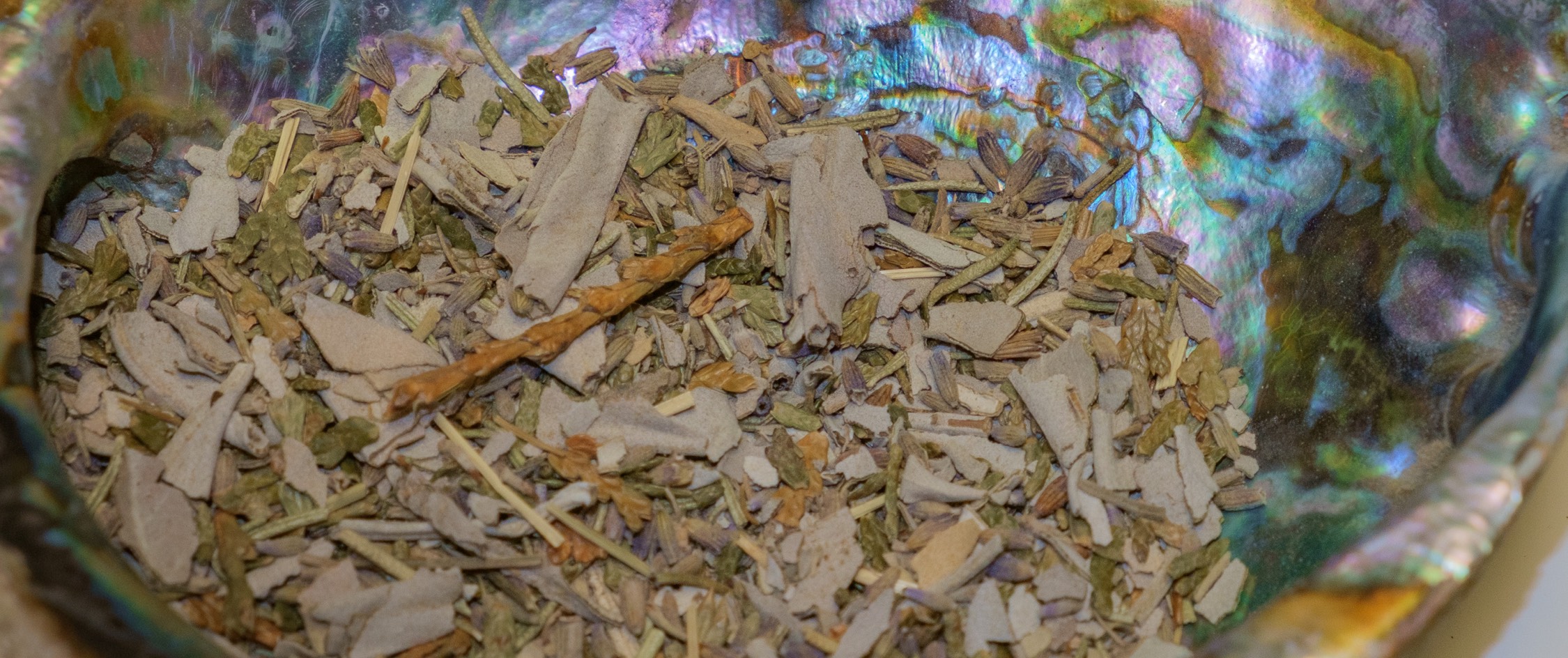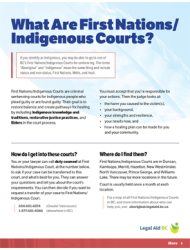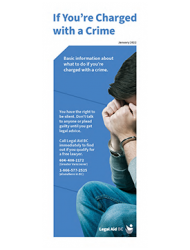
The default method of attendance for participants is in person. See the Provincial Court’s NP 28 for more information.
If you identify as Aboriginal or Indigenous and you plead guilty to a crime or are found guilty, you might be able to have your bail or sentencing hearing in a First Nations/Indigenous Court in BC. You might be brought into a First Nations/Indigenous Court by referral from a judge, defence lawyer, or Crown lawyer. Or you can request to go to First Nations/Indigenous Court. It’s your choice to have your matter heard in First Nations/Indigenous Court. Talk to your lawyer or First Nations/Indigenous Court duty counsel about what’s best for you.
First Nations/Indigenous Courts are criminal sentencing courts that use restorative justice and traditional ways to reach balance and healing. BC's First Nations/Indigenous Courts are often called Gladue courts.
First Nations/Indigenous Courts focus on balancing rehabilitation, accountability, and healing. The judge, your lawyer, Crown counsel, Elders and your community, and your family work with you to create a healing plan to help restore your mental, physical, spiritual, and emotional health.
You might still be sentenced to jail. If you're sentenced to jail, the judge must still consider your unique circumstances in their decision.
Indigenous community legal workers — Give legal information and limited advice services
Native Courtworkers and Counselling Association of BC — Culturally appropriate services to Aboriginal people involved in the criminal justice system
First Nations Court duty counsel — Give free legal advice about having your case transferred to First Nations Court and the charges against you


